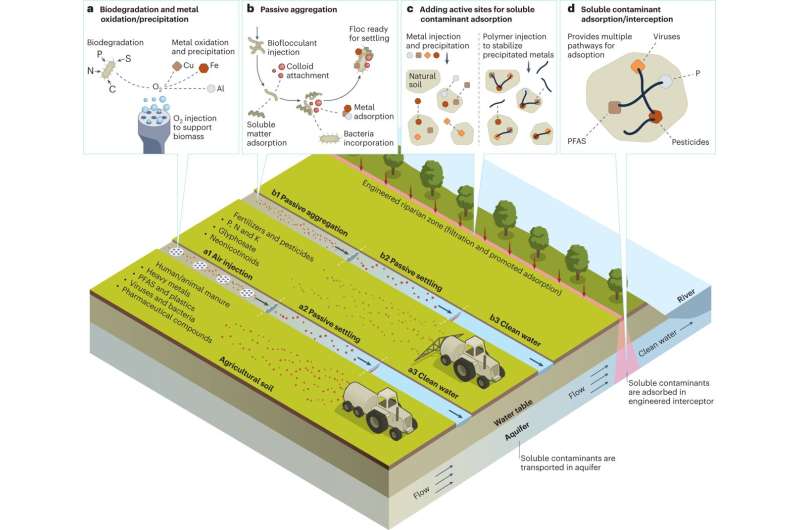Passive ecosystem services, juxtaposed with engineered processes, can democratize wastewater treatment

Human activities have a significant impact on natural waters, aquatic biodiversity and the quality of drinking water resources. For Professor Mathieu Lapointe of the Department of Construction Engineering at École de technologie supérieure (ÉTS), it is possible to treat certain types of wastewater—not currently treated—globally using more sustainable and affordable in situ methods.
In a study carried out by Professor Lapointe and published in Nature Water, the rate of discharge into the environment of certain types of untreated water—urban and rural runoff, as well as that generated by industry—varies from one country to another. Countries with lower incomes tend to discharge more than those with higher incomes. More specifically, wastewater treatment rates can vary from 4% to 95%, depending on the country.
Water treatment plants are not only costly, they also consume a lot of energy. Moreover, they don’t solve the problems associated with urban waterproofing or the erratic excess rainfall caused by climate change. In addition, agricultural and urban runoff is often considered insufficiently contaminated to justify the cost of using conventional treatment plants. As a result, runoff remains untreated even though it can contaminate aquatic ecosystems.
Professor Lapointe recommends passive, modular, inexpensive, and decentralized solutions capable of retaining certain contaminants. These include bioretention cells, aggregate-decant systems and seepage areas through functionalized soils. He also proposes a greater reliance on “passive ecosystem services,” including microorganisms, oxidation, photodegradation and inactivation, to name a few.
“To treat waters that are not currently treated for techno-economic reasons, such as storm water runoff, government authorities and environmental organizations would do well to promote passive systems, which can be combined or integrated with more conventional processes for collecting and treating wastewater.”
Although more in-depth studies are needed to better assess the advantages and cost-benefits of this solution that combines technology with passive methods, Professor Lapointe is optimistic about the viability of this alternative.
More information:
Mathieu Lapointe et al, Passive ecosystem services, juxtaposed with engineered processes, can democratize wastewater treatment, Nature Water (2023). DOI: 10.1038/s44221-023-00065-w
Citation:
Passive ecosystem services, juxtaposed with engineered processes, can democratize wastewater treatment (2023, June 13)
retrieved 13 June 2023
from https://phys.org/news/2023-06-passive-ecosystem-juxtaposed-democratize-wastewater.html
This document is subject to copyright. Apart from any fair dealing for the purpose of private study or research, no
part may be reproduced without the written permission. The content is provided for information purposes only.
For all the latest Science News Click Here
For the latest news and updates, follow us on Google News.

